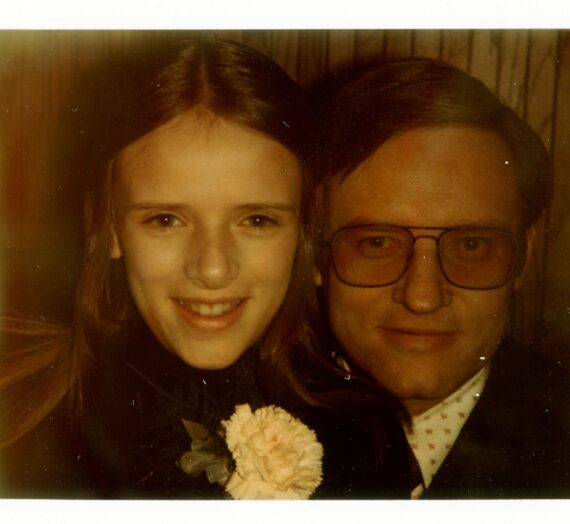“All dogma begins in mysticism,” says Rob Bell. But by the time programs, practices, and policies filter down to Church members, it’s little wonder the criteria for determining what really matters in the long term—and why—can feel a bit fuzzy. In light of recent changes, in bonus Episode 199 Cynthia and Susan revisit their conversation from Episode 102, Did It Ever Matter? What’s the point of all the trappings of our religious practice as Latter-day Saints? Why do some changes bring so much emotion? And who gets to determine what’s important to us?

Notes & Quotes:
ALSSI Ep. 102, Did It Ever Matter?
When Anger Meets Love: Anger and Grief, Center for Action and Contemplation, 2/29/2024
New Information on Church Policies
Not Letting Women Open Sacrament Meeting Redux, by Kevin Barney, By Common Consent, 5/5/2008
A Sense of the Sacred, by D. Todd Christofferson, BYU Speeches, 11/7/2004
The Power of Ritual: How to Create Meaning and Connection in Everything You Do, by Casper ter Kuile
Navigating Mormon Faith Crisis: A Simple Developmental Map, by Thomas Wirthlin McConkie
The Sheeeeet Factor, by Rob Bell, The Robcast, Ep. 25, 6/29/2015
Bible Dictionary: Law of Moses
26 years ago, Carl Sagan gave us an incredible perspective on our planet, by Paul Pzoldra, Business Insider, 2/14/2016
“Most of the time our anger is due to unwillingness to face the hurt we feel and the real reasons behind it. […] Most of us associate anger and tears with tears that spring from anger, not tears that cleanse us from anger. But … tears of anger are themselves … a sign of choice, of potential change.” —Mirabai Starr
“Embrace your anger with a lot of tenderness. Your anger is not your enemy, your anger is your baby. It’s like your stomach or your lungs. Every time you have some trouble in your lungs or your stomach, you don’t think of throwing them away. The same is true with your anger. You accept your anger because you know you can take care of it; you can transform it into positive energy.” —CAC meditation
“Some say dress and hair don’t matter—it’s what’s inside that counts. I believe that truly it is what’s inside a person that counts, but that’s what worries me. Casual dress at holy places and events is a message about what is inside a person. It may be pride or rebellion or something else, but at a minimum it says, “I don’t get it. I don’t understand the difference between the sacred and the profane.” In that condition they are easily drawn away from the Lord. They do not appreciate the value of what they have. I worry about them. Unless they can gain some understanding and capture some feeling for sacred things, they are at risk of eventually losing all that matters most. You are Saints of the great latter-day dispensation—look the part.” — D. Todd Christofferson
“Institutions have turned mysteries into dogmas. They’ve lost the lightness of touch to translate the timeless wisdom into relevant teaching.” — Casper ter Kuile
“Principles are flexible in a way that rules can’t be. In a healthy scenario, the rules are transcended and included. Meaning our sense of principle now informs the way we respond to and act on the rules, rather than the literalness of the rules bludgeoning us over the head.” — Thomas McConkie
“Peter’s religion gets in the way of the new thing God is doing. Peter’s belief that he is defending God’s way is an obstacle to him actually living in God’s way.” — Rob Bell
“One of the major questions the early Church in Palestine had to decide was about the obligation of Christians to the ceremonial law of Moses. […] The Jewish Christians in particular had difficulty giving up the ritual of the law of Moses. The Nephites, on the other hand, seemed to have had much less of a problem doing so (see 3 Ne. 15:1–5).
The law as given through Moses was a good law, although adapted to a lower spiritual capacity than is required for obedience to the gospel in its fulness. However, the Jewish leaders had added many unauthorized provisions, ceremonies, and prohibitions to the original law, until it became extremely burdensome. These innovations were known as the “traditions of the elders.” By New Testament times among the Jews the law had become so altered it had lost much of its spiritual meaning.” — Bible Dictionary
“Everyone you love, everyone you know, everyone you ever heard of, every human being who ever was, lived out their lives on a mote of dust suspended in a sunbeam.” — Carl Sagan
“He hath made every thing beautiful in his time: also he hath set the world in their heart, so that no man can find out the work that God maketh from the beginning to the end.” — Ecclesiastes 3:11



